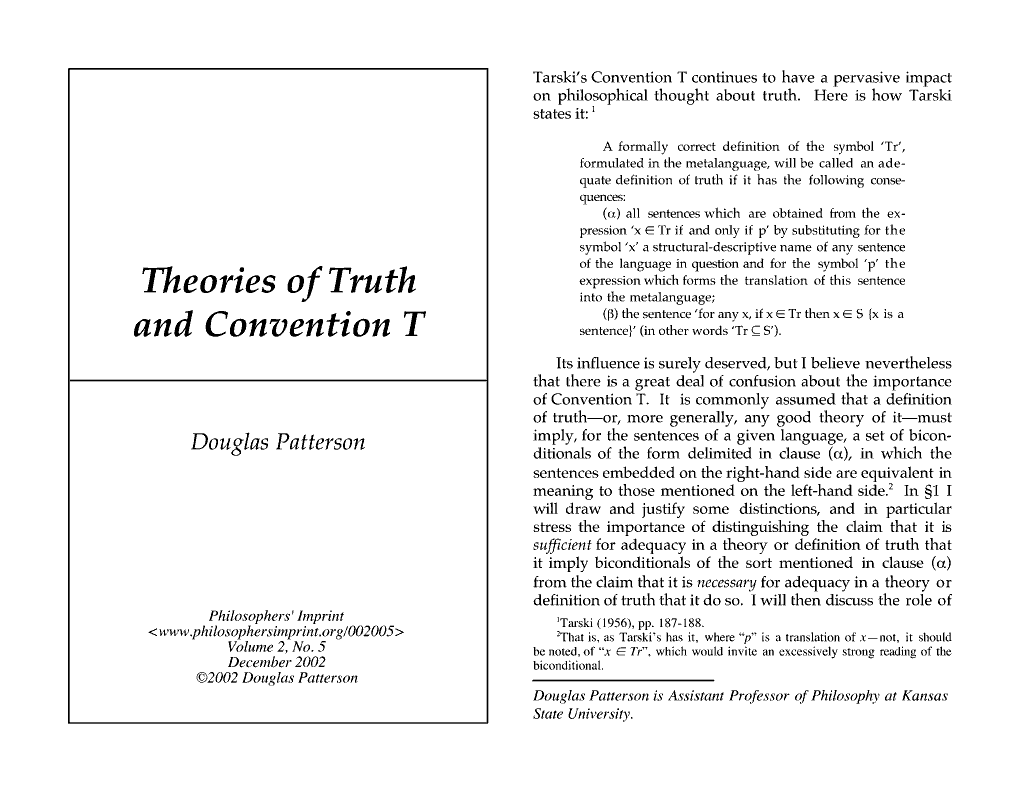Theories of Truth and Convention T
Skip other details (including permanent urls, DOI, citation information): This work is licensed under a Creative Commons Attribution-NonCommercial-NoDerivatives 3.0 License. Please contact [email protected] to use this work in a way not covered by the license.
For more information, read Michigan Publishing's access and usage policy.
Abstract
Partly due to the influence of Tarski's work, it is commonly assumed that any good theory of truth implies biconditionals of the sort mentioned in Convention T: instances of the T-Schema "s is true in L if and only if p" where the sentence substituted for "p" is equivalent in meaning to s. I argue that we must take care to distinguish the claim that implying such instances is sufficient for adequacy in an account of truth from the claim that doing so is necessary. The claim that doing so is sufficient is a common component of deflationary theories of truth, while the claim that it is necessary, though often assumed, must be denied by proponents of rival inflationary theories of truth. I discuss the clarification of the debate between these views of truth that results from distinguishing the necessity and the sufficiency claims, and examine the prospects for its resolution.



